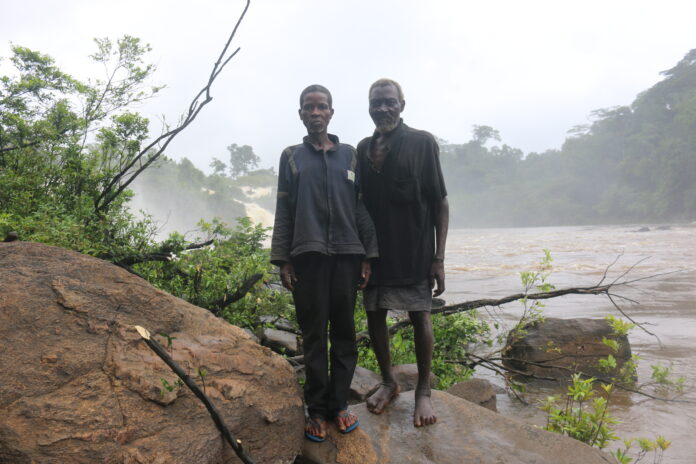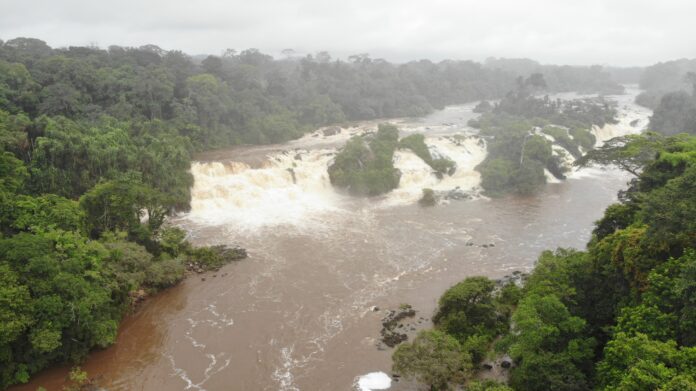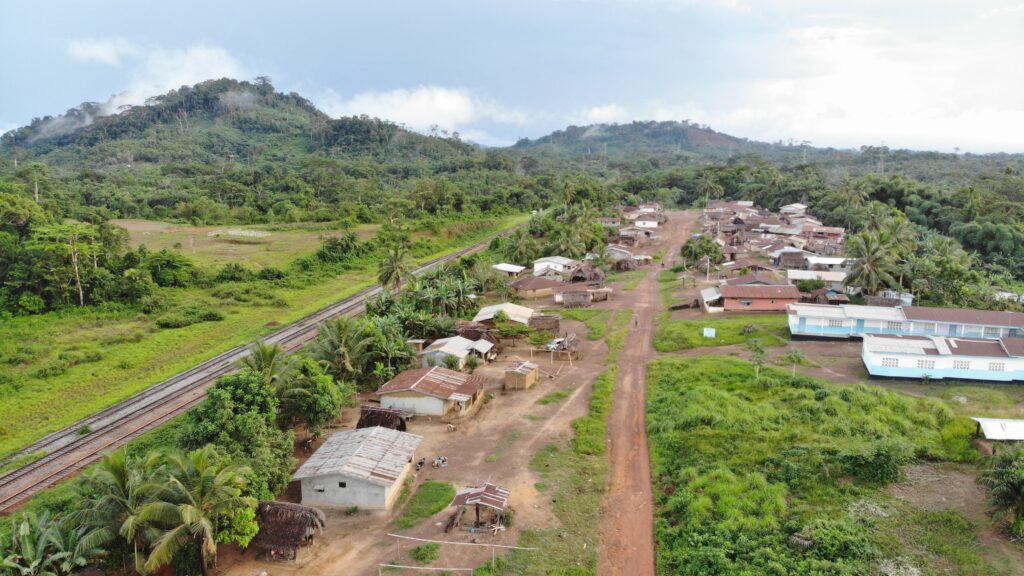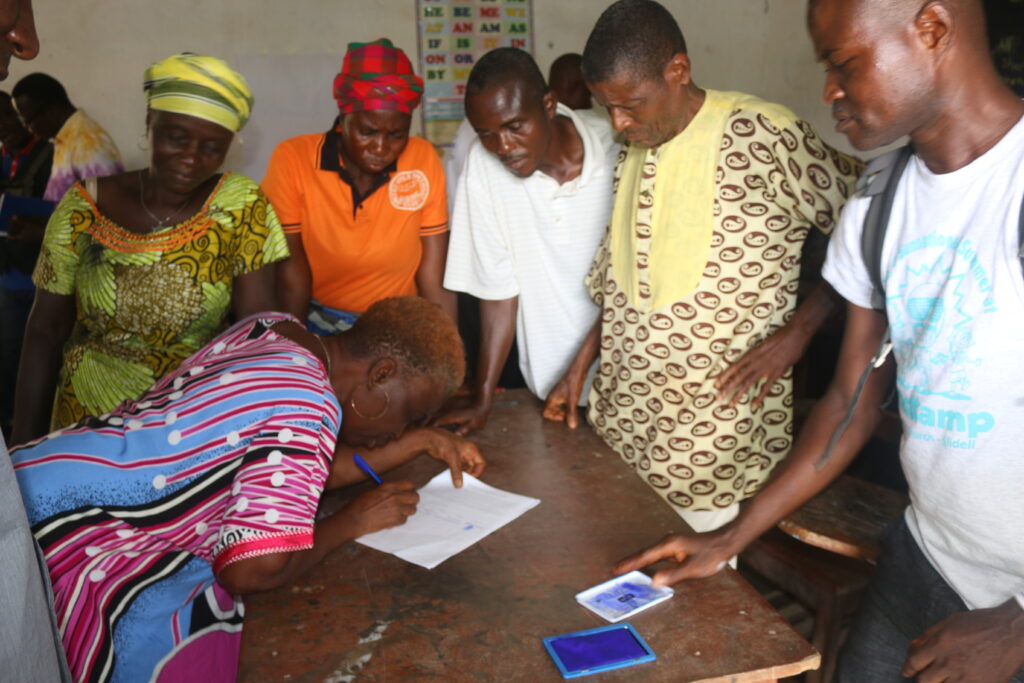Top: Elijah Kolleh (left) and Yarkpawolo Kollie are guardians of the Whorn Waterfall in Kokoyah District, Bong County. The DayLight/James Harding Giahyue
By James Harding Giahyue
SEEGAR TOWN, Bong County – The two elderly men take my colleague Derick Snyder and me on a tour of an enormous yet largely unknown waterfall.
Yarkpawolo Kollie and Elijah Kolleh are not just some random tour guides. They are guardians of Whorn Waterfall on the St. John River in the Kokoyah District Bong County.
Kollie and Kolleh spend a good portion of their time regulating access to the fall. Skilled basket weavers and fishermen, the men protect it and a Sande shrine nearby from unauthorized access and desecration.
“That area is a traditional area, the [largest] waterfall in the Republic of Liberia,” Morris Dukuly, a former chief of Seegar Town. The DayLight could not independently verify Dukuly’s claim but drone pictures show it is larger than the Kpatawee Waterfall. Whorn is about a 20-minute walk from Seegar Town through farms and a swathe of rocky, hilly forest.
“We can’t just permit anybody to just enter,” adds Dukuly, a descendant of the family that founded Seegar Town.
It was Dukuly and the rest of the town’s leadership who appointed Kollie and Kolleh. It is part of a tradition that has lasted since the early 1900s, Dukuly tells us.
The elderly men are not the fall’s only guardians. Other townsmen play that role, too. They belong to a legion of villagers who spend a lifetime protecting their land and custom.
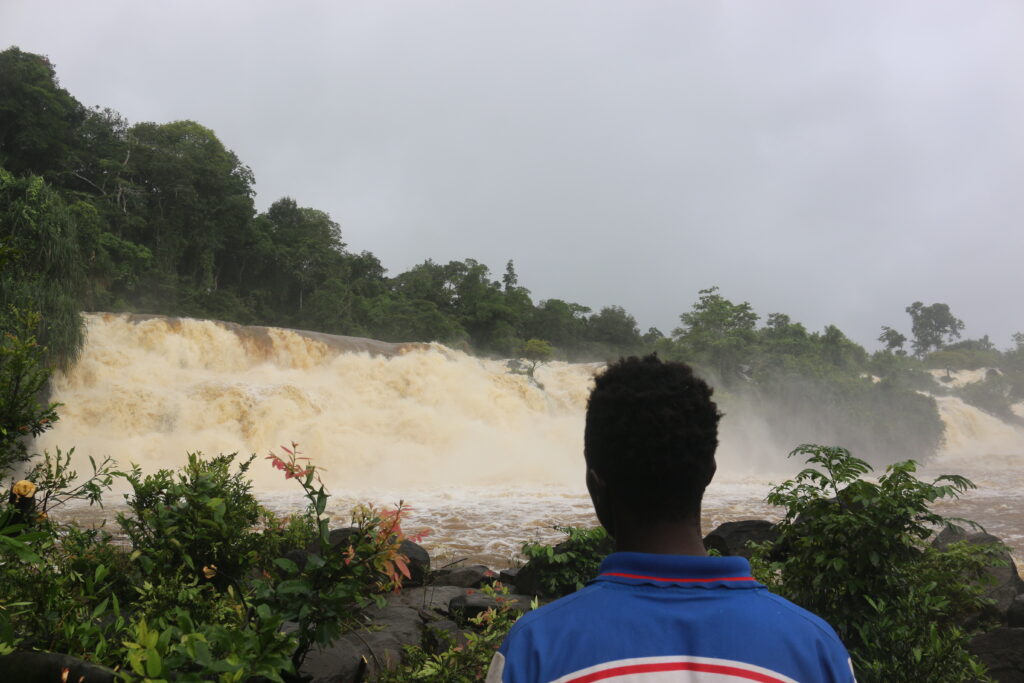
Last month, Quikon Clan, where the waterfall is located, asked an NGO to assist it to get a customary deed. The clan wants to preserve that and benefit from their resources, following years of government neglect.
Under the Land Rights Act, Quikon owns the land, water and forest in Seegar and 23 other towns, covering more than 2,000 hectares. However, it must meet certain legal requirements to get a deed from the government.
Gbarnga-based NGO Parley Liberia is now guiding Quikon in its quest. The clan is one of 37 communities across eight counties benefiting from a US$3.54 million project, funded by the International Land and Forest Tenure Facility of Sweden.
“Once we have a deed, we get the power to say anything to any investor that will come… to use that waterfall,” says Junior Tarr, the Paramount Chief of Kokoyah.
Kollie and Kolleh are aware of the new quest but are focused on their jobs.
They spend the rainy season at the waterfall, fishing and smoldering their catch. We are not allowed to go to where they fish—because of the shrine—but we can see a few rattan baskets.
One basket hangs not far from the doorway of a hut a few feet from the rocky riverbanks next to the fall. Two others are outside the hut and two more are in different locations.
“When the dry season comes, we go back in the town,” explains Kolleh 60-something, the younger of the two men. A lot of people come to see the fall at that time, he adds.
The waterfall makes a forest spectacle. Its brownish water pours down a rocky, steep hill, making a loud noise. Droplets form a cloud and reduce the green shading of the forest on both sides of the river. Big rocks line up the riverbanks, creating a stage for us to stand and behold nature at its best.
After nearly two hours here, it is time for us to go. Kollie and Kolleh gave us some worm fish from a drier to eat. We say goodbye and start our journey back to Gbarnga.

